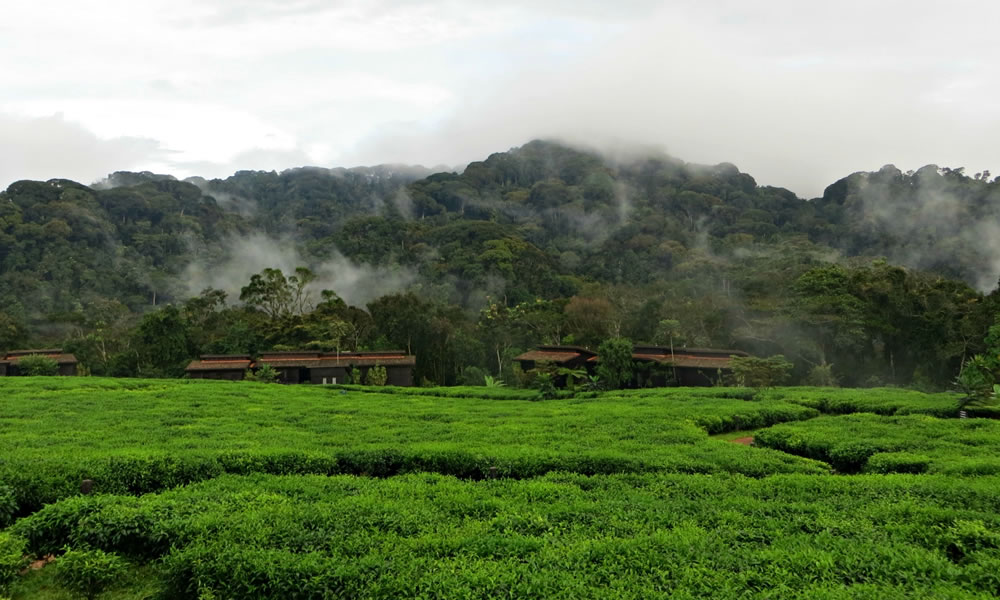
Gisakura Tea Plantation in Rwanda.
Nestled in the verdant hills of southwestern Rwanda, near the borders of the renowned Nyungwe Forest National Park, lies the Gisakura Tea Plantation. The Gisakura Tea Plantation in Rwanda is not just a symbol of Rwanda’s thriving tea industry but also a testament to the country’s commitment to sustainable agriculture and eco-tourism.
A Brief Overview of Rwanda’s Tea Industry
Tea is one of Rwanda’s most significant export crops, contributing substantially to the nation’s economy. Introduced during the colonial era, tea cultivation has flourished in the country’s high-altitude regions, where the cool climate and rich volcanic soils create ideal growing conditions. Gisakura Tea Plantation is one of the jewels in this thriving industry, producing high-quality tea that is sought after on international markets.
The Landscape and Experience
The Gisakura Tea Plantation is a sight to behold. The tea bushes, planted in neat, undulating rows, stretch as far as the eye can see, creating a patchwork of vibrant green against the backdrop of misty hills and the dense Nyungwe Forest. Visitors to the plantation are immediately struck by the serene beauty of the landscape, which offers a perfect escape from the bustle of urban life.
Guided tours of the plantation provide an immersive experience. Visitors can learn about the tea production process, from planting and plucking to withering, rolling, and drying. The meticulous care that goes into every step of tea production is evident, and visitors often leave with a newfound appreciation for their daily cup of tea.
One of the most unique aspects of a visit to Gisakura is the opportunity to interact with the local community. Many of the workers on the plantation are from the surrounding villages, and their knowledge and passion for tea production add a personal touch to the experience.
Proximity to Nyungwe Forest
The plantation’s location near Nyungwe Forest National Park adds to its allure. Nyungwe is one of Africa’s oldest rainforests and is home to a remarkable diversity of wildlife, including 13 species of primates and over 300 bird species. Many visitors combine a trip to Gisakura Tea Plantation with a trek in Nyungwe, creating a perfect blend of cultural and natural exploration.
The Gisakura area also offers a range of accommodations, from luxury lodges to budget-friendly guesthouses, making it an accessible destination for travelers with varied budgets. Some lodges, such as the Nyungwe Top View Hill Hotel, even offer panoramic views of the tea fields and the forest, enhancing the overall experience.
Sustainability and Community Impact
Gisakura Tea Plantation is not only a hub for tea production but also a model for sustainable practices. The plantation prioritizes environmentally friendly methods and supports local community initiatives. By providing employment opportunities and engaging in community development projects, the plantation plays a vital role in uplifting the surrounding area.
Gisakura Tea Plantation is more than just a tea-growing site; it is a destination that embodies the harmony of nature, agriculture, and culture. Whether you are a tea enthusiast, a nature lover, or a curious traveler, a visit to Gisakura promises to be a memorable experience. From its breathtaking landscapes to its rich cultural connections, this hidden gem is a must-see on any Rwandan itinerary.



